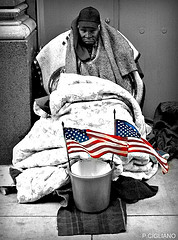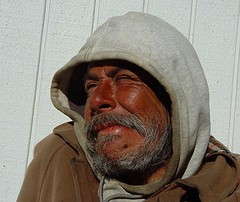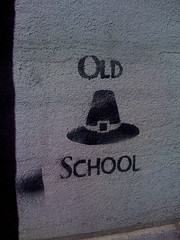 We are very pleased to see the reception our newest book is getting, even with the release ten days away!
We are very pleased to see the reception our newest book is getting, even with the release ten days away!
There have been a few reviews and articles posted recently that can give you a good perspective on the work.
Library Journal (review only available in the print edition, this link goes to the BArnes and Noble website where it is reporduced):
More policy-oriented than academic in tone, this book is recommended for specialized juvenile justice collections and libraries holding the other two volumes in the series. Though government austerity is in vogue, this book is a powerful reminder of the social costs of neglecting the specific needs of at-risk youth.—Antoinette Brinkman, Evansville, IN
EFEAmerica, an online publication with a Hispanic focus, takes a look at the book.
‘We want to make the public more aware of how desperate these young people are for a little love and affection, and the fact that they don’t want to be involved in drugs – but more and more U.S. youngsters lack education and suffer the effects of being brought up by single fathers or mothers with no time for them because they’re working two jobs,’ Lankford said.
For the author, the factors most likely to land these young people in the juvenile detention system are their broken family relations, not their ethnicity or immigration problems.
San Diego City Beat’s Dave Maass talks about the book in the context of Susan and Polly Lankford’s recent visit to the McAllister Institute, a drug treatment center in El Cajon. One of the main points that he focuses on is the opacity of the justice system in California:
That may be the most important part of the text; the San Diego County Probation Department doesn’t allow media or public access to its facilities except for once-a-year, highly controlled open houses. The department cites confidentiality issues, but Susan believes opacity only worsens the problem.
‘I think [confidentiality] is the biggest joke around, because all of these kids know each other, they learn everything bad that they possibly can from one another before they’re released and they come back in with even more criminal behavior,’ Susan says. ‘That’s one of the things I am upset with, because I don’t think accountability happens with confidentiality.’
In the blogging world we are happy to note that Matthew T. Mangino– former district attorney of Lawrence County, Pennsylvania and current member of the Pennsylvania Board of Probation and Parole – decided to share some thoughts about the book. You might be familiar with his work in the Washington Post, Philadelphia Inquirer, Pittsburgh Post-Gazette, Cleveland Plain Dealer and the Harrisburg Patriot News, Pennsylvania Law Weekly, CNN, MSNBC, FoxNews, Court TV and National Public Radio.)
Lankford concludes that, ‘[I]nstitutions like juvenile hall are not a good substitute for a family.’ Psychiatrist Diane Campbell said, ‘The youth in the hall don’t need miracle workers; they simply need some who is ‘just good enough.’
Lankford makes it clear that ‘good enough’ consists of a reliable, loving and nurturing figure that will help mold a child. She uses her skills as a writer and photographer to make sure her readers understand the plight of troubled young people and how to turn ‘at-risk’ youths into ‘at-promise’ youths.
As we approach publication it is heartwarming to see the interest in this vital topic. As with our prior works we hope that Born, Not Raised will not only make people think, but will also spur them to action. The statistics support a more rehabilitative approach, but zero tolerance laws and for profit prisons weild considerable finanacial might. We hope that after reading our book you will find yourself motivated to act against that might and for substantive positive change in the way we deal with criminal justice.

 San Diego’s yearly Stand Down event just passed recently, hosted by one of the oldest and most well-known programs to help homeless veterans. In case you’re not familiar with it,
San Diego’s yearly Stand Down event just passed recently, hosted by one of the oldest and most well-known programs to help homeless veterans. In case you’re not familiar with it, 
 Early morning last Monday had seen faces that you wouldn’t normally see at that hour fan out through downtown San Diego, as the volunteers had attempted to take a census of the society’s disenfranchised. The effort is part of a national initiative to get better data about the homeless population so that help can be given to those most in need. The goal is to reduce the number of homeless on the streets by 100,000 between now and the middle of 2013.
Early morning last Monday had seen faces that you wouldn’t normally see at that hour fan out through downtown San Diego, as the volunteers had attempted to take a census of the society’s disenfranchised. The effort is part of a national initiative to get better data about the homeless population so that help can be given to those most in need. The goal is to reduce the number of homeless on the streets by 100,000 between now and the middle of 2013. There are many paths taken by those on the streets. For an unfortunate number of pople, one of those paths is prostitution, and they get started at an earlier age than some of us would think.
There are many paths taken by those on the streets. For an unfortunate number of pople, one of those paths is prostitution, and they get started at an earlier age than some of us would think.
 So many of our societal ills can be traced back to failures in the American educational system. Thus it is vitally important that we take an interest in that system and how it’s functioning.
So many of our societal ills can be traced back to failures in the American educational system. Thus it is vitally important that we take an interest in that system and how it’s functioning. As you walk through the streets of San Diego, or any other American city, you will see the homeless. People living rough in the urban landscape. Each one is somebody’s brother, mother, son, cousin, or spouse. In addition, many of them had fought for our country.
As you walk through the streets of San Diego, or any other American city, you will see the homeless. People living rough in the urban landscape. Each one is somebody’s brother, mother, son, cousin, or spouse. In addition, many of them had fought for our country. Interesting things are happening in the California penal system. Both sides of the aisle, left and right, have plans for a big change in the way the prison system works. Of course, much of this is being fueled by the massive deficit facing the state.
Interesting things are happening in the California penal system. Both sides of the aisle, left and right, have plans for a big change in the way the prison system works. Of course, much of this is being fueled by the massive deficit facing the state. So many issues trace back to childhood. The opportunities, the lack thereof, early life traumas, and all the other factors that can impinge on early life, create the building blocks from which the adult is sculpted. Educational opportunities are particularly key, especially during the early years when the mind is so hungry for knowledge.
So many issues trace back to childhood. The opportunities, the lack thereof, early life traumas, and all the other factors that can impinge on early life, create the building blocks from which the adult is sculpted. Educational opportunities are particularly key, especially during the early years when the mind is so hungry for knowledge.







